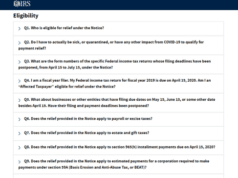
How’d you like to be the next wolf of Wall Street (without the negativity)? Well with day trading, you can be something like Leonardo DiCaprio’s character in that movie. Day trading can literally enrichen you in less than a day.
If that sounds like something you’d like, then read on.
What Is Day Trading?
According to Investopedia, day trading is “the act of buying and selling a financial instrument within the same day or even multiple times over the course of a day.” Financial instruments can be classified as cash instruments or derivative instruments.
Now let’s move on to five strategies for beginner day traders.
1. Inform Yourself
Reading this article is a good first step on the path to informing yourself about day trading. You should also stay current on stock market news and other events related to stocks, like news about the economy, the Federal Reserve’s interest rates, and more.
Write down the companies whose stocks you want to trade, and stay up-to-date on the markets that interest you.
2. Allocate Funds and Time
Determine how much money you’re willing to risk. Consider risking less than 1% to 2% of your account per trade. You should know exactly how much money you’re willing to trade with and are thus willing to lose.
Time is money, and day trading takes up most of the day. It also requires being available throughout the day to capitalize on market opportunities.
3. Take Small Steps
Everything worthwhile takes time. Beginners should only focus on one or two stocks (at most) at a time. You can even start with fractional shares, which allow you to specify smaller amounts to invest.
That means that some brokers will allow you to buy, say, a fifth of a company’s share. Don’t buy penny stocks though.
4. Timing Is Everything
Like with many things in life, timing is everything with day trading. Novices would do well to wait for 15 to 20 minutes after the markets open in the morning before making a trade.
Stay away from the other busier time before the closing bell, and look for opportunities during the middle of the trading day.
5. Follow the Plan
If you fail to plan, plan to fail. Make a plan ahead of time for how you’re going to trade, and chart patterns for day trading. When it comes time to actually act on your plan, don’t be swayed by emotions or the short-sighted pursuit of profit.
Instead, save yourself the trouble of having to think on your feet and follow your plan.
Day Trading Rules
Beginning day traders can improve their chances of success by heeding the rules listed above. Self-education, shrewd financial stewardship, and long-term planning are all good practices for day trading.
Compared to more advanced day traders, newbies should be more cautious and conservative in their approach. They should resist the temptation to deviate from such an approach. As they read more, they’ll empower themselves with more knowledge to apply, the application of which is power.
For more knowledge that you can turn into financial power, browse the Business section of our website.
You May Like These Articles As Well:
How to Reset Your Metabolism? A Helpful Guide
Taking the Work Out of Workout: 15 Fun Exercises to Help You Get in Shape








